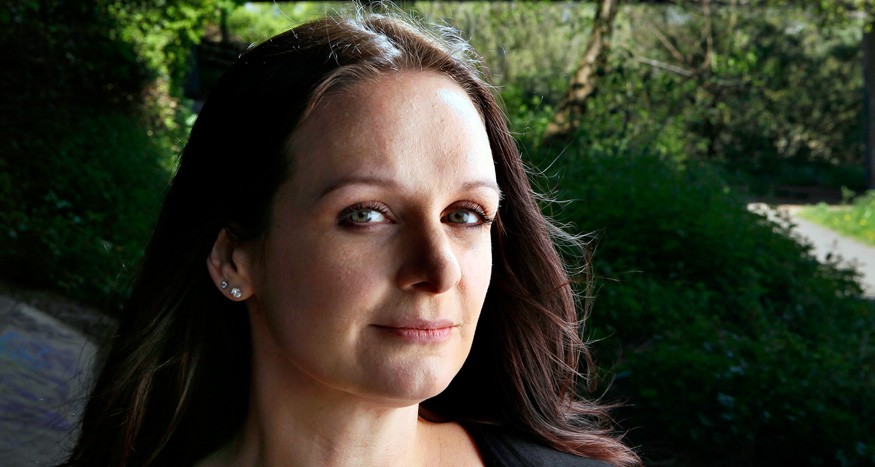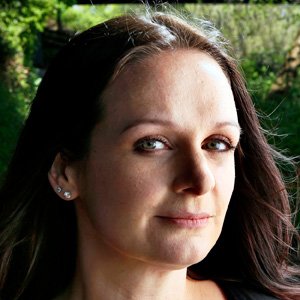
What inspired you to become a writer?
I was inspired by Enid Blyton. I fell in love with her Magic Faraway Tree series and it really fired my imagination. Aged about eight I started making little books of my own – writing out the story, drawing illustrations and a cover and then stapling them together. I sent one to Ladybird Books and received my first ever rejection.
I’m very lucky that I’ve been able to write books in different genres. I started my career writing stories and I experimented with lots of different styles and genres – humorous fiction, sci-fi, crime, women’s fiction, surrealism and even some more literary stories. It was great to be able to experiment because, while I knew that I loved to write, I didn’t know what kind of writer I was.
Heaven Can Wait, a supernatural romantic comedy was my first attempt at a novel. It was an idea I’d had for a while – about a woman who dies the night before her wedding and refuses to go to heaven – and I never dreamed that book would get me an agent and a two book deal. It sold very well abroad, and was a bestseller in China and Hungary, but not so well in the UK as rom coms were falling out of favour back in 2009.
After my second book was published my editor said she wasn’t commissioning any more rom coms so I started thinking about what else I’d like to write. I’d written a chapter of something much darker that had won me the Romantic Novelists’ Association Elizabeth Goudge prize. There was a mystery at its heart – a young girl had written ‘keeping this secret is killing me’ in her diary and then deliberately stepped in front of a bus – but I didn’t know why. While I was on maternity leave with my son I started thinking some more about that story. I’d plot it while I fed him at night and wrote it during his naps in the day. In 2014 it was published by Avon as The Accident. It was my first psychological thriller and I’ve since written three more – The Lie, The Missing and The Escape.
The YA thriller The Treatment came about because I’d had the idea for a while and was itching to write it. In March 2016, when The Missing came out, I decided to write a synopsis and the first three chapters and run them by my agent. She loved them and got me a two book YA deal with HarperCollins HQ based on what I’d written. I then went on to write my third adult psychological thriller The Escape and, as soon as I was done with that, finished writing The Treatment. Writing two books in one year was exhausting but I can’t wait until The Treatment is published on 19 October.
What constraints, if any, did you find in writing for a younger reader?
The only constraint I found was watching my language! My adult books are littered with swear words and I had to find alternative ways of showing my characters’ frustration or anger in The Treatment. Other than that I found writing YA really freeing. I’m naturally quite a pacy writer and it’s really important in YA that the storyline rattles along quickly. I also adored my main characters, particularly Drew who is so brave. So much braver than I was at her age!
Do you have a favourite genre to write in?
I don’t really have a favourite as I tend to fall in love with the stories rather than the genre. That said I find it much easier to make readers feel tense, claustrophobic and scared in my psychological thrillers than I did making readers laugh in my rom coms. Being funny is much harder than it might seem.
My inspiration is changing, the more novels I write. The Accident, The Lie and The Missing were all inspired by my fears – fear that an ex-boyfriend would return and ruin my happiness, fear that a friend could turn other friends against me and fear of losing my son. In The Escape I took inspiration from a local news story about a mother going on the run with her child rather than turning him over to the court. The novel I’m writing now is also inspired by a news story.
Would you ever consider writing a series of crime novels?
No, not really. I think with a series you’re constrained by what happened in the earlier novels and I love the freedom of being able to start afresh each time with a new cast of characters, a new setting and a new idea. That said I can see the appeal of using the same characters over and over again, particularly if you really love them.
Are you a crime fiction lover? Who are your favourite authors?
I do love crime, yes. I don’t think you could be a crime author and not love crime! My favourite crime author is Belinda Bauer. I think she’s a genius. All of her novels are so different but she brings her trademark wit to each book and she always manages to create a hugely gripping read. I’m also a big fan of my psychological thriller contemporaries Mark Edwards and Tammy Cohen. Whenever one of their proofs drops through my letterbox I know I’m in for a dark, twisty read that I won’t be able to put down.
What’s your writing routine?
I drop my son at school in the morning, grab some breakfast and then take the dog for a walk. I finally sit down at my desk at about 11am and start writing. Because I start so late I tend to eat my lunch at my desk, grabbing bites of a sandwich between sentences. I’ll continue to write until 2:45pm then set off to pick up my son. Twice a week my son goes to after school club which gives me longer to write in the afternoon. As my deadline approaches I’ll often take myself off to a hotel for the weekend so I can write without interruption or I’ll go to a writing retreat for a week in the school holidays. Last year I went to Chez Castillon in France and managed 15,000 words in five days which is three times more words than my normal output!
I hugely dislike the term ‘chick lit’. I think it’s an attempt to demean female writers to make what they write seem frivolous and disposable. I much prefer the term romantic comedy or just ‘humour’ which can be applied to men and women. I don’t mind the term domestic noir as a) it was coined by my friend and fellow author Julia Crouch, and b) it’s a descriptive term that can equally apply to male and female writers and it describes a crime novel that’s set in the home. That said not all my books are domestic noir. The Lie for example is set in a retreat (cult) in the Annapurna mountain range in Nepal and the book I’m currently writing isn’t about a marriage or family. Psychological thrillers or psychological suspense are probably better labels to apply to my books.
When can we expect a new crime novel from you?
The Treatment arrives on 19 October this year and, all going well, my next psychological thriller will be published on 22 March 2018. I don’t want to share the title or say too much about it – I never do until I’ve finished the first draft and the title has been approved by my publisher – but I will say that it’s something a little different. You won’t find any missing children, errant husbands, twins, sisters or evil friends in this book…
